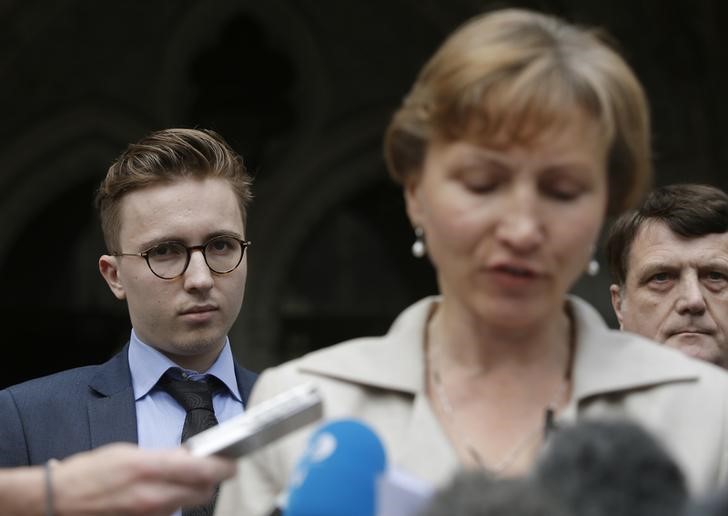By Michael Holden
LONDON (Reuters) - A British inquiry into the death of ex-KGB spy Alexander Litvinenko, poisoned in London a decade ago with tea laced with a rare radioactive isotope, is likely to conclude Russia was responsible when it publishes its findings on Thursday.
An outspoken critic of Russian President Vladimir Putin, Litvinenko, 43, died in November 2006 three weeks after drinking green tea laced with polonium-210 at London's plush Millennium Hotel, shortly after he had obtained British citizenship.
From his deathbed, Litvinenko told detectives Putin had directly ordered his killing. The Kremlin dismissed that claim as ridiculous at the time and has always denied involvement.
Lawyers for the police and Litvinenko's family, who have called his death "a nuclear attack on the streets of London", say Russian involvement is the only credible explanation.
The public inquiry, much of which was held in secret, is likely to reach a similar conclusion. Its chairman previously said that, at first sight, there was a case for pointing the finger at the Russian state.
Russia has repeatedly rejected accusations of involvement in Litvinenko's death and has dismissed the inquiry as politically motivated.
Moscow has declined to take part in proceedings as have Andrei Lugovoy and Dmitry Kovtun, the two Russian men Britain accuses of actually carrying out the murder.
They agree they met Litvinenko a number of times in London including at the Millenium Hotel where Kovtun recalled he gulped down two cups of tea without asking. They deny any involvement in his death and Russia has refused to extradite them.
"It is most expectable that Russia will be connected somehow to this crime," Igor Sutyagin from London's Royal United Service Institute told Reuters.
The death of Litvinenko marked a post-Cold War low point in Anglo-Russian relations, and ties have never recovered, marred further by Russia's annexation of Crimea and its support for Syrian President Bashar al-Assad.
British newspapers said Prime Minister David Cameron would chair a meeting of security chiefs ahead of publication of the report to consider what if any action Britain should take.
Sutyagin said he expected Britain would consider the report itself as sending out a message to the Kremlin.
"Everything which blames or is seen as an accusation against Russia is perceived in a very personal way by Vladimir Putin," he said. "He will react in a very angry way which will not help to improve relations with the UK."
DEATH IN LONDON
Richard Horwell, the lawyer acting for London police, told the inquiry the Russian state might have wanted Litvinenko dead for many reasons, including his defection to Britain, his accusations of Kremlin corruption, his sympathy for Chechen separatists and his claims about Putin's lifestyle.
Ben Emmerson, the lawyer for Litvinenko's widow Marina, called Putin a "tinpot despot" at the inquiry and said Russia had a history of political assassinations.
The inquiry was told the former Russian agent was working for British security services and had produced reports for western companies linking Putin and his associates to criminal gangs which had led to deals being cancelled.
Experts also said 97 per cent of the world's production of polonium was made in Russia's Avangard nuclear facility while Emmerson said Litvinenko was also planning to help Spanish intelligence expose alleged Kremlin links to the Russian organised crime groups.
Emmerson said scientific evidence linking Kovtun and Lugovoy to traces of polonium detected around London had proved beyond doubt that they were responsible. They deny involvement.

The inquiry was told traces of polonium were found across London where the pair had been, including offices, hotels, planes and the Arsenal soccer stadium.